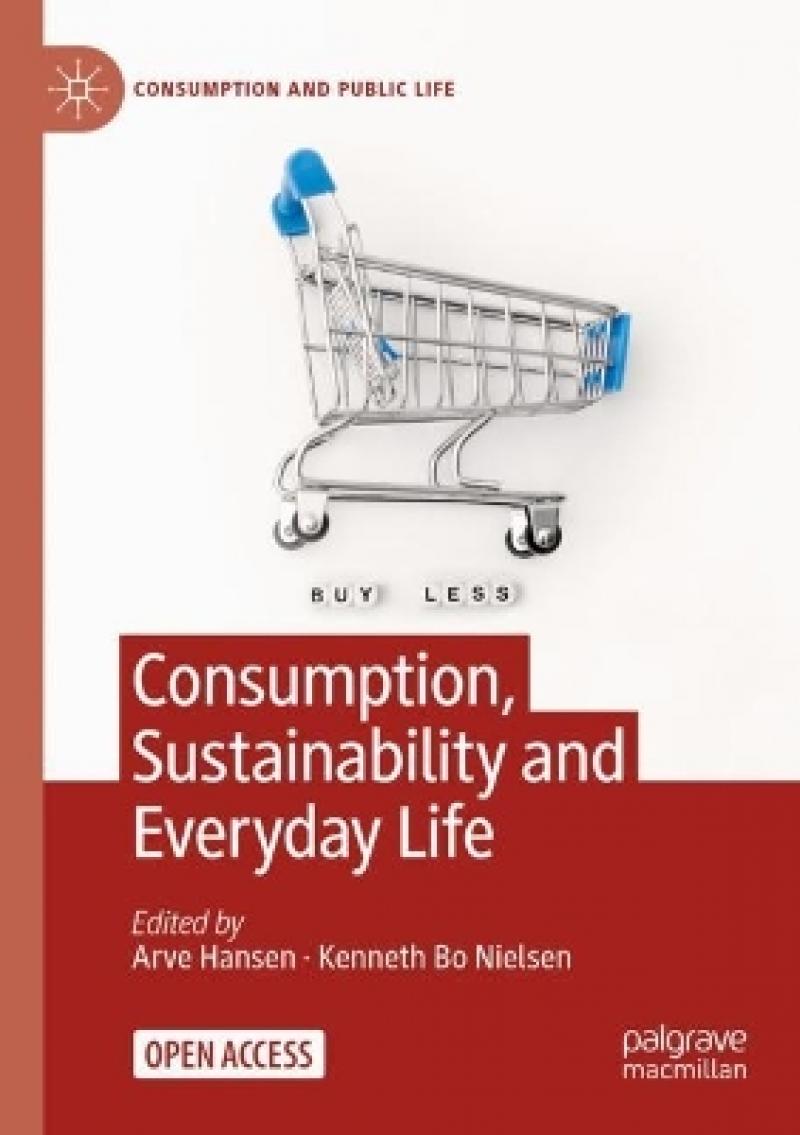This open access book seeks to understand why we consume as we do, how consumption changes, and why we keep consuming more and more, despite the visible damage we are doing to the planet. The chapters cover both the stubbornness of unsustainable consumption patterns in affluent societies and the drivers of rapidly increasing consumption in emerging economies. They focus on consumption patterns with the largest environmental footprints, including energy, housing, and mobility and engage in sophisticated ways with the theoretical frontiers of the field of consumption research, in particular on the ‘practice turn’ that has come to dominate the field in recent decades. This book maps out what we know about consumption, questions what we take for granted, and points us in new directions for better understanding—and changing—unsustainable consumption patterns.
1. Consumption, sustainability and everyday life.- 2. Capitalism, consumption, and the transformation of everyday life: The political economy of social practices.- 3. Household Energy Practices in Low-energy Buildings: A qualitative Study of Klosterenga Ecological Housing Cooperative.- 4. Solar water heating: informing decarbonization policy by listening to the users.- 5. Sufficiency in China’s energy provision. A service understanding of sustainable consumption and production.- 6. Practices, provision and protest: Power outages in rural Norwegian households.- 7. The rise and fall of the ‘people's car’: middle-class aspirations, status and mobile symbolism in ‘New India’.- 8. Practical aeromobilities: making sense of environmentalist air-travel.- 9. Everyday life and how it changes: studying ‘sustainable wellbeing’ with students during a pandemic.- 10. Towards sustainable transport practices in a coastal community in Norway. Insights from human needs and social practice approaches.- 11. Value Mapping: Practical Tools for Wellbeing and Sustainable Consumption.- 12. Can economics help to understand, and change, consumption behaviour? - 13. Towards sustainable consumption: reflections on the concepts of social loading, excess, and idle capacity.
— Elizabeth Shove, Distinguished Professor of Sociology, Lancaster University, UK
This open access book seeks to understand why we consume as we do, how consumption changes, and why we keep consuming more and more, despite the visible damage we are doing to the planet. The chapters cover both the stubbornness of unsustainable consumption patterns in affluent societies and the drivers of rapidly increasing consumption in emerging economies. They focus on consumption patterns with the largest environmental footprints, including energy, housing, and mobility and engage in sophisticated ways with the theoretical frontiers of the field of consumption research, in particular on the ‘practice turn’ that has come to dominate the field in recent decades. This book maps out what we know about consumption, questions what we take for granted, and points us in new directions for better understanding—and changing—unsustainable consumption patterns.Arve Hansen is a researcher at Centre for Development and the Environment, University of Oslo, Norway, where he leads the centre’s research group on consumption and energy and the Norwegian Network for Asian Studies. His research focuses on sustainable consumption in Norway and Southeast Asia, with particular focus on the relationship between everyday practices and economic systems.
Kenneth Bo Nielsen is Associate Professor at the Department of Social Anthropology at the University of Oslo, Norway, and leader ofthe Norwegian Network for Asian Studies. His research is focused on political economy, land politics, dispossession, and social movements, with a particular emphasis on India where he has worked for two decades.
“In showing how concepts of consumption, sustainability and everyday life have combined and changed over time and in confronting fundamental questions of excess, growth and the ratcheting of demand, this is a book that looks to the future. Individually and in combination the chapters underscore the importance and relevance of social science and the power of careful research and scholarship. The result is a fitting tribute to Hal Wilhite, a pioneer in this field.” (Elizabeth Shove, Distinguished Professor of Sociology, Lancaster University, UK)
“Households and their everyday practices and consumption patterns are critical to shaping low-carbon futures. Yet the role of households in sustainability transitions remains poorly understood and often ignored by policy. This volume brings readers up to speed on the cutting edge frontiers of knowledge related to consumption and sustainability. In the process, the volume pays tribute to Hal Wilhite, a ground-breaking luminary in the field of consumption and energy research.” (Benjamin K. Sovacool, Professor of Energy Policy, University of Sussex, UK)
“A fitting tribute to a key figure who appreciated that the issues of everyday consumption and energy, as well as their impact upon sustainability, were only ever going to grow in importance year by year and which require today, more than ever, the quality of evidence, insights and attention which the papers in this book exemplify.” (Daniel Miller, Professor of Anthropology, University College London, UK)
“This book offers a rich collection of contributions to understand why we consume as we do, how consumption changes, and why we, in the privileged part of the world and in countries with growing economies, keep consuming more. Despite the fact that households cause most of the current environmental harm, the authors observe the paradox that policies for sustainable consumption are almost non-existing. A good place to begin addressing the problem is by reading this book.” (Tanja Winther, Professor of Development and Environment, University of Oslo, and Head of Include – Research centre for socially inclusive energy transition, Norway)
Produktdetaljer
Biographical note
Arve Hansen is a researcher at Centre for Development and the Environment, University of Oslo, Norway, where he leads the centre’s research group on consumption and energy and the Norwegian Network for Asian Studies. His research focuses on sustainable consumption in Norway and Southeast Asia, with particular focus on the relationship between everyday practices and economic systems.
Kenneth Bo Nielsen is Associate Professor at the Department of Social Anthropology at the University of Oslo, Norway, and leader of the Norwegian Network for Asian Studies. His research is focused on political economy, land politics, dispossession, and social movements, with a particular emphasis on India where he has worked for two decades.
